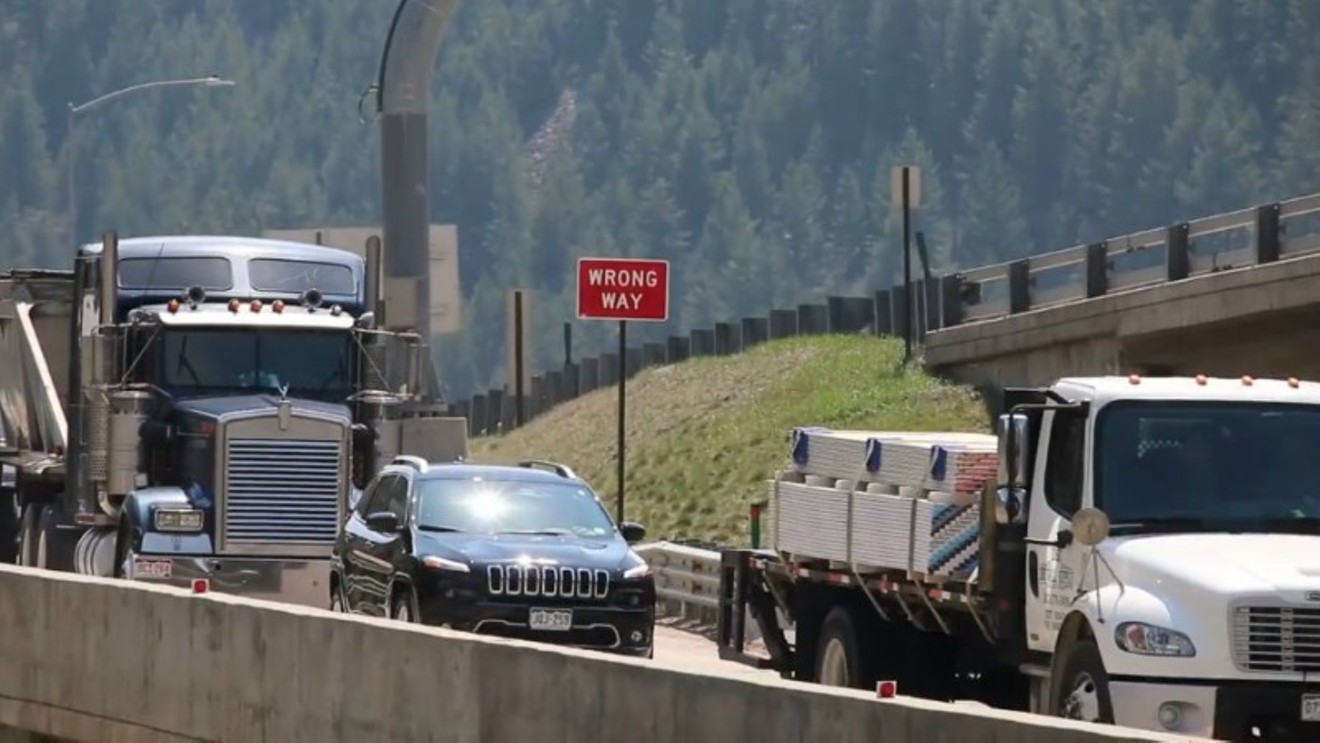Colorado hasn't increased its 22-cent gas tax, which funds state highway projects, since 1993, which is projected to create a $9 billion shortfall over the next decade, according to state transportation officials. The backlog primarily consists of high-priority projects like relieving the I-70 bottleneck at Floyd Hill and building toll lanes in the I-25 South Gap between Castle Rock and Colorado Springs.
State lawmakers took a jab at the problem, albeit weakly, last session when they passed a transportation funding bill that guarantees $645 million over the next two years. They committed to $2.3 billion in bonding over the next two decades, but Coloradans must vote on it as a ballot initiative come November. Lawmakers haven't put any proposition forward, so filling that gap are two competing initiatives that have their own takes on how to fund transportation projects.
In one corner is the establishment initiative backed by elected officials, business groups, chambers of commerce, economic development corporations and civic organizations campaigning under the banner Let's Go Colorado for a sales-tax increase that would raise $766.7 million in transportation funding annually for twenty years and authorize up to $6 billion in state bonds. The tax increase would be 0.62 percent, or 62 cents per $100 transaction.
In the other corner is a plan from the conservative Independence Institute, which is vehemently opposed to any tax increase. The think tank is circulating its Fix Our Damn Roads petition to push for $3.5 billion in state transportation bonds for road and bridges without a new revenue stream.
These ideologically opposed petitions are competing for the requisite 98,492 signatures to get on the November ballot. And that could get sticky.
For the anti-taxers, Fix Our Damn Roads poses a conservative win-win. If it passes, the state gets road projects and taxes aren't raised. And even if Fix Our Damn Roads needs to be a sacrificial lamb, it's still a win, argues Jon Caldara, president of the Independence Institute.
"If all our ballot measure does is contrast the [Denver Metro Chamber of Commerce's] massive tax increase and they both fail, I consider that a wonderful victory as well,” Caldara says.
Let's Go Colorado's backers know that in a state where the Taxpayer's Bill of Rights, one of the most restrictive taxation policies in the country, still reigns supreme, it might be hard to convince Coloradans to get behind a new tax.
"I can't predict the results of the election, but I think we're going to work hard to get the word out to folks that the responsible way to fix our transportation problem is by bringing new money to the table," says Will Toor, transportation program director for the regional nonprofit advocacy organization Southwest Energy Efficiency Project, who is on the pro-tax campaign. Toor is also a former Boulder mayor and former Boulder County commissioner. "I think we know going in that we're going to have to work really hard to pass a tax increase for transport, and as part of that, if the Caldara initiative makes it to the ballot, we certainly will need to be explaining to people why we don't think that's a wise direction to go."
If both measures die, the $1 billion annual transportation funding shortfall will remain untouched, at least until the next legislative session."Now is not the time to ask working people in Colorado to pay more in a regressive tax."
tweet this
So why wasn't there a meeting of the minds between these two factions so that a solution would have a real shot at passing? As Caldara put it, there are "irreconcilable" differences.
"Now is not the time to ask working people in Colorado to pay more in a regressive tax. It's a bridge too far. We will never support a tax increase for transportation; the money is there," Caldara says. "The problem is not that we don't have enough money. The problem is we’re spending it on things like Medicaid expansion.”
The conservative-backed ballot initiative would ask the government to go into billions of dollars of debt — bonds typically take decades before maturity — with no dedicated revenue stream and with an already restrictive tax climate thanks to TABOR, which forces the state to reimburse residents if it collects too much in taxes.
If the economy tanks again, say the pro-tax backers, the state would have to pay off debtors regardless of the budgetary slashes required or risk facing a hit to its credit rating; the latter option would make future bonded projects even more expensive. There's also the possibility that if the economy weakens, some bonds won't be issued at all.
"The Caldara initiative, I think, doesn't do enough to address our diverse transportation needs and would do it by taking money away from education and health care," Toor says. "There's no way you can address a need that significant without new money. ... If you don't have a new revenue stream to back it up, that's not a fiscally responsible solution."













